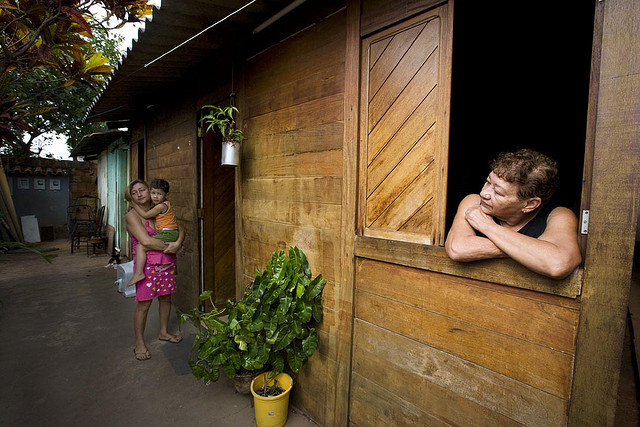The original version of this article, by Laurie Goering, appeared on AlertNet.
Rosimere Lopes knows what she does not want in life.
The 23-year-old, who lives in Cachoeirinha, a hillside slum in Rio’s gritty North Zone, was born when her mother was just 16, and grew up taking care of her five younger brothers and sisters while her mother worked.
As a result of missing so much education, she’s still trying to finish high school. But she has accomplished one important thing – she has no children of her own yet, despite having a regular boyfriend.
“My mother got pregnant at 16 so I know the consequences. I don’t want that,” she said. “I want to do better.”
In the last decade, Brazil has undergone a family planning revolution. In 2000, the country’s birthrate was 2.4 children per woman, already dramatically down from decades past. Today it has dropped to 1.9 children, below replacement level and on a par with many developed countries.
That slowdown, built on making available better information and contraceptives, and on growing urbanization, is increasingly looked at as a model by experts around the world trying to find ways to dampen population growth and consumption – both linked to accelerating climate change and resource scarcity.
Continue reading on AlertNet.
Sources: UN Population Division.
Photo Credit: A grandmother, mother, and child in Brasilia, courtesy of flickr user babasteve (Steve Evans).

 A Publication of the Stimson Center.
A Publication of the Stimson Center.




